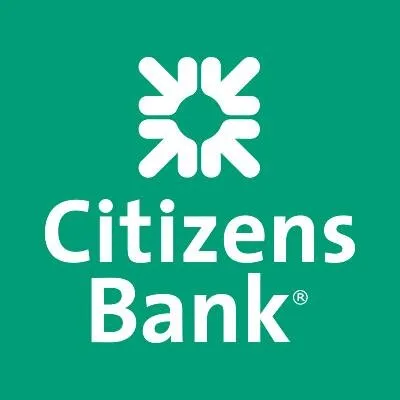 Recently, many banks and credit unions have come under fire for excessive overdraft fees and other alleged improper overdraft protection activities.
Recently, many banks and credit unions have come under fire for excessive overdraft fees and other alleged improper overdraft protection activities.
Some of these financial institutions, like Citizens Bank, have been accused by customers of misrepresenting the sequence of posted transactions in order to charge more overdraft fees on an already overdrawn bank account, a process known as reordering.
What is an Overdraft Fee?
An overdraft occurs when a checking, savings, or money market savings account does not have enough funds to cover a transaction, but the transaction is still processed by the bank for a fee, also known as an overdraft fee or sometimes a courtesy pay fee.
Fees charged to customers by their bank when there is an overdrawn bank account are not illegal. However, it has been alleged that many banks made a practice of manipulating how charges are allocated to customers’ accounts to unfairly increase overdraft fees.
Specifically, these banks process transactions starting with the largest-dollar-amount transaction and ending with the transaction with the smallest dollar amount, rather than processing all transactions in chronological order. This is done without fully or accurately disclosing these practices to customers.
This type of processing makes customer account balances fall faster than they should, which increases the number of overdraft fees that occur when an account is overdrawn and increases the banks’ revenue.
Citizens Bank Overdraft Programs
Citizens Bank offers two types of overdraft protection – an overdraft line of credit or a savings overdraft transfer. With an overdraft line of credit, a customer’s checking account is linked to the line of credit. Funds are automatically transferred from the line of credit to cover an overdrawn bank account.
The costs for the Citizens Bank overdraft line of credit include a $30 annual fee, $6 transfer fee per item covered and interest on outstanding balances.
With the savings overdraft transfer, Citizens Bank customers can link their checking account to a savings account, where funds can be automatically transferred from the savings account to cover an overdrawn bank account. There is also a $6 transfer fee per item covered and the bank only allows up to 7 overdraft fees transfers per plan on any one business day.
In 2013, Citizens Bank agreed to pay $137.5 million to settle a slew of overdraft fees lawsuits that alleged that Citizens Bank manipulated its customers’ transactions in order to generate excess overdraft fees.
According to the Citizens Bank overdraft fees lawsuit, an internal bookkeeping practice resulted in Citizens Bank customers being charged substantially more in overdraft fees than had their transactions posted chronologically.
Overdraft Fees Lawsuit Information
Effective as of July 1, 2010, financial institutions were mandated to have customers opt in to overdraft protection programs. However, many customers are still confused to what their options are regarding overdraft fees as many banks may be not be disclosing the true nature of overdraft fees and programs.
As such, some customers have found it necessary to pursue legal action claiming that their bank or credit union manipulating the order of transactions instead of posting them chronologically in order to rake in more overdraft fees.
In assessing these fees, these lawsuits contend, a financial institution has breached the account agreement because it either misstates when it charges overdraft fees or fails to disclose how fees are calculated.
If you bank at Citizens Bank or other financial institution and suspect you have been charged improper or excessive overdraft fees, an experienced attorney can evaluate your case at no cost and advise about possibly bringing an overdraft fees class action lawsuit.
Do YOU have a legal claim? Fill out the form on this page now for a free, immediate, and confidential case evaluation. Some of the banks and credit unions being investigated include, but are not limited to:
First Bancorp
Flagstar Bank
Third Federal Savings and Loan of Cleveland
Old National Bancorp
Sterling Bank
Nordstrom Bank
Ally Bank
Bank of Hawaii
Capital One
The attorneys who work with Top Class Actions will contact you if you qualify to let you know if an individual lawsuit or class action lawsuit is best for you. Hurry — statutes of limitations may apply.
ATTORNEY ADVERTISING
Top Class Actions is a Proud Member of the American Bar Association
LEGAL INFORMATION IS NOT LEGAL ADVICE
Top Class Actions Legal Statement
©2008 – 2025 Top Class Actions® LLC
Various Trademarks held by their respective owners
This website is not intended for viewing or usage by European Union citizens.
Get Help – It’s Free
Join a Free Bank & Credit Union Overdraft Fee Class Action Lawsuit Investigation
If your bank and credit union charged you overdraft fees, you may have a legal claim. Fill out the form on this page now to find out if you qualify!
An attorney will contact you if you qualify to discuss the details of your potential case.
ATTORNEY ADVERTISING
The choice of a lawyer is an important decision and should not be based solely on advertisements.
E-mail any problems with this form to [email protected]
PAID ATTORNEY ADVERTISEMENT: THIS WEB PAGE IS AN ADVERTISEMENT AND THE PARTICIPATING ATTORNEY(S) ARE INCLUDED BECAUSE THEY PAY AN ADVERTISING FEE. The attorney in charge of this advertisement is T.Kick. It is not a lawyer referral service or prepaid legal services plan. Top Class Actions is not a law firm. Top Class Actions does not endorse or recommend any lawyer or law firm who participates in the network, nor does it analyze a person’s legal situation when determining which participating lawyers receive a person’s inquiry. It does not make any representation and has not made any judgment as to the qualifications, expertise or credentials of any participating lawyer. No representation is made that the quality of the legal services to be performed is greater than the quality of legal services performed by other lawyers. The information contained herein is not legal advice. Any information you submit to Top Class Actions does not create an attorney-client relationship and may not be protected by attorney-client privilege. Do not use the form to submit confidential, time-sensitive, or privileged information. All photos are of models and do not depict clients. All case evaluations are performed by participating attorneys.












